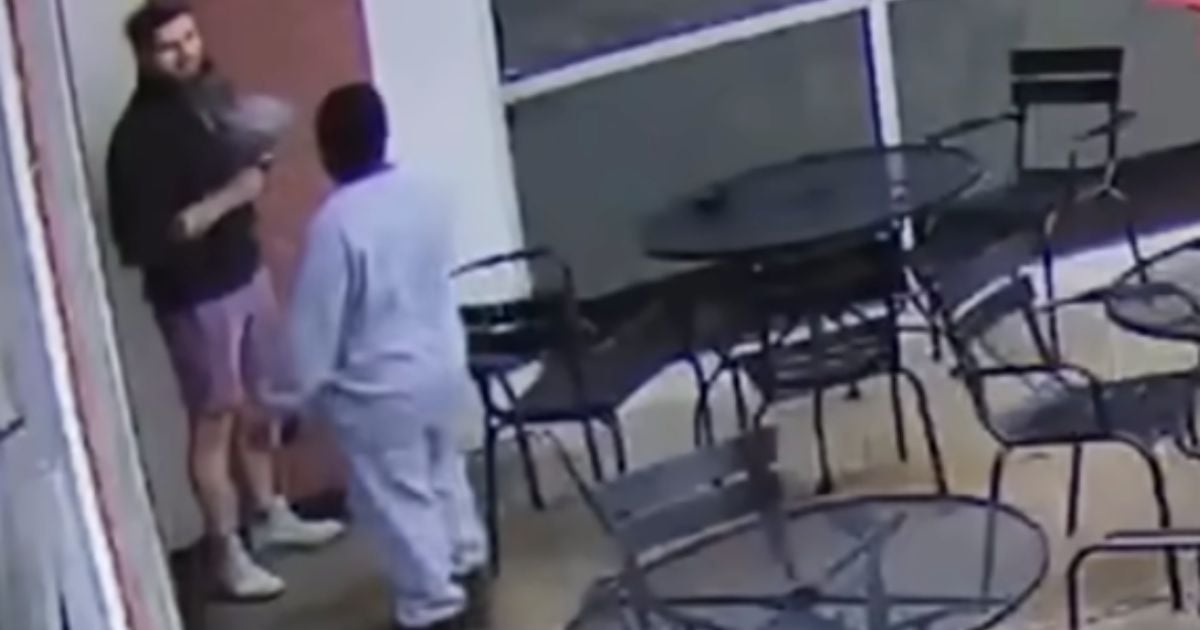If you saw someone being mistreated, would you speak up? What if it was someone who couldn’t stick up for themselves? When the “What Would You Do” series set up a restaurant with cameras and actors, people had the chance to take action.


A young man with down syndrome pretended to take a long time to order, while another actor became annoyed with him.
The man would say mean thing to the boy, ask the waitress to take his order first, call the boy names, and even tell him he needed a guardian and shouldn’t be in the restaurant alone.
Meanwhile, the other people in the restaurant, who weren’t aware that they were dealing with actors, overheard it all. Some of them tried to ignore the issue, but most of them grew agitated with the man.
One woman jumped up and told him to stop harassing the boy. Another man told him to leave if he didn’t want to wait. Another woman went to the manager, and many others interfered and told the man to stop being so judgmental and mean to the boy with down syndrome.


They had no idea they were being videotaped, and they didn’t know the boy they were defending.
They simply saw someone who needed help and tried to help him. When they were told about the actors and asked why they helped, most of them just said they did it because it was the right thing to do. Some of them had personal stories.


One woman had previously taught children with disabilities, and others had family members or friends with down syndrome or other disabilities.
According to the National Down Syndrome Society:
“Down syndrome occurs when an individual has a full or partial extra copy of chromosome 21. This additional genetic material alters the course of development and causes the characteristics associated with Down syndrome. There are three types of Down syndrome: trisomy 21 (nondisjunction) accounts for 95% of cases, translocation accounts for about 4%, and mosaicism accounts for about 1%.
“Down syndrome is the most commonly occurring chromosomal condition. Approximately one in every 700 babies in the United States is born with Down syndrome – about 6,000 each year. Down syndrome occurs in people of all races and economic levels. The incidence of births of children with Down syndrome increases with the age of the mother. But due to higher fertility rates in younger women, 80% of children with Down syndrome are born to women under 35 years of age.”


“People with Down syndrome have an increased risk for certain medical conditions, such as congenital heart defects, respiratory and hearing problems, Alzheimer’s disease, childhood leukemia and thyroid conditions. Many of these conditions are now treatable, so most people with Down syndrome lead healthy lives.
“A few of the common physical traits of Down syndrome are: low muscle tone, small stature, an upward slant to the eyes, and a single deep crease across the center of the palm. Every person with Down syndrome is a unique individual and may possess these characteristics to different degrees or not at all. Life expectancy for people with Down syndrome has increased dramatically in recent decades – from 25 in 1983 to 60 today. People with Down syndrome attend school, work, participate in decisions that affect them, have meaningful relationships, vote and contribute to society in many wonderful ways.”


Although the condition is common, people still don’t understand or accept it.
Many people with down syndrome are bullied regularly. A lot of children with the condition struggle to make friends in school and are picked on. When they become adults, things don’t get any easier. People with down syndrome and other mental disabilities deserve the same respect as other people.


If you saw someone mistreating a person with a mental disability, would you ignore it, or would you speak up?
How far would you be willing to go to defend that person? Hopefully, most people would do as the people in this video did.
Please SHARE this with your friends and family.















